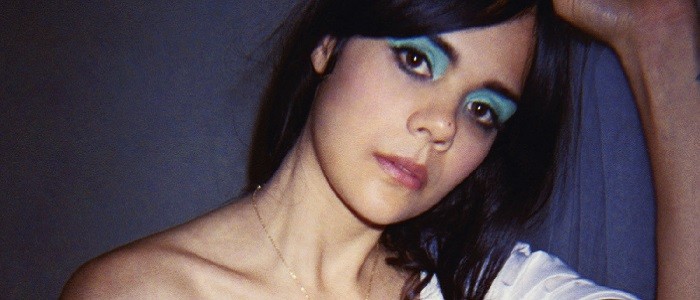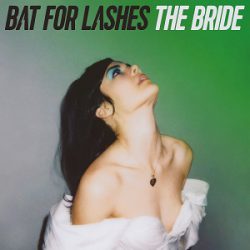Characters have always been important in Natasha Khan’s art – from “Sarah” and “Prescilla” on Bat For Lashes’ debut and the alter-egos of 2009’s Two Suns, right up to “Laura” and “Marilyn” on 2012’s The Haunted Man. Yet Khan’s fourth album is her first that seems truly cinematic.
The Bride is a bona fide concept album, telling the story of a woman whose fiancé is killed on the way to their wedding. A little like Truffaut’s The Bride Wore Black remade by David Lynch, it’s noir-ish, romantic and unsettling, from its Western guitar tones, Angelo Badalamenti-esque electric piano and the early ’90s production feel. Even the call of “fire, fire, fire” that ends “In God’s House”, Khan’s voice vaulting octaves and wreathed in digital reverb, seems like something Lynch would approve of.
The tale is told through varied textures: “Honeymooning Alone” starts with the sound of a car crash, and soon moves into acidic chords and jazzy drums reminiscent of Portishead; “Sunday Love”, powered by a motorik beat, is the most accessible moment here, while the following lament, “Never Forgive The Angels”, could be an ancient, droning folk melody. “Nightmares come but they don’t go,” Khan intones. “I will never forgive the angels for that.”
Strings become more prominent as the album draws to its final third, and the story of the bride’s mourning and subsequent salvation comes to a close. “Widow’s Peak”, a slightly hammy spoken-word piece, is the only misstep, even as it slyly references Twin Peaks – “a portrait of him, a picture of her, a keyhole in a Douglas fir…”
By the time Khan reaches “I Will Love Again”, the bride is hopeful for the future once again, vowing that she will “turn it back around/I’ll be homeward bound”. Unsurprisingly, Khan has ambitions to direct films, but it’s hard to imagine how a movie could be much more evocative than this Technicolor record.
Tom Pinnock


